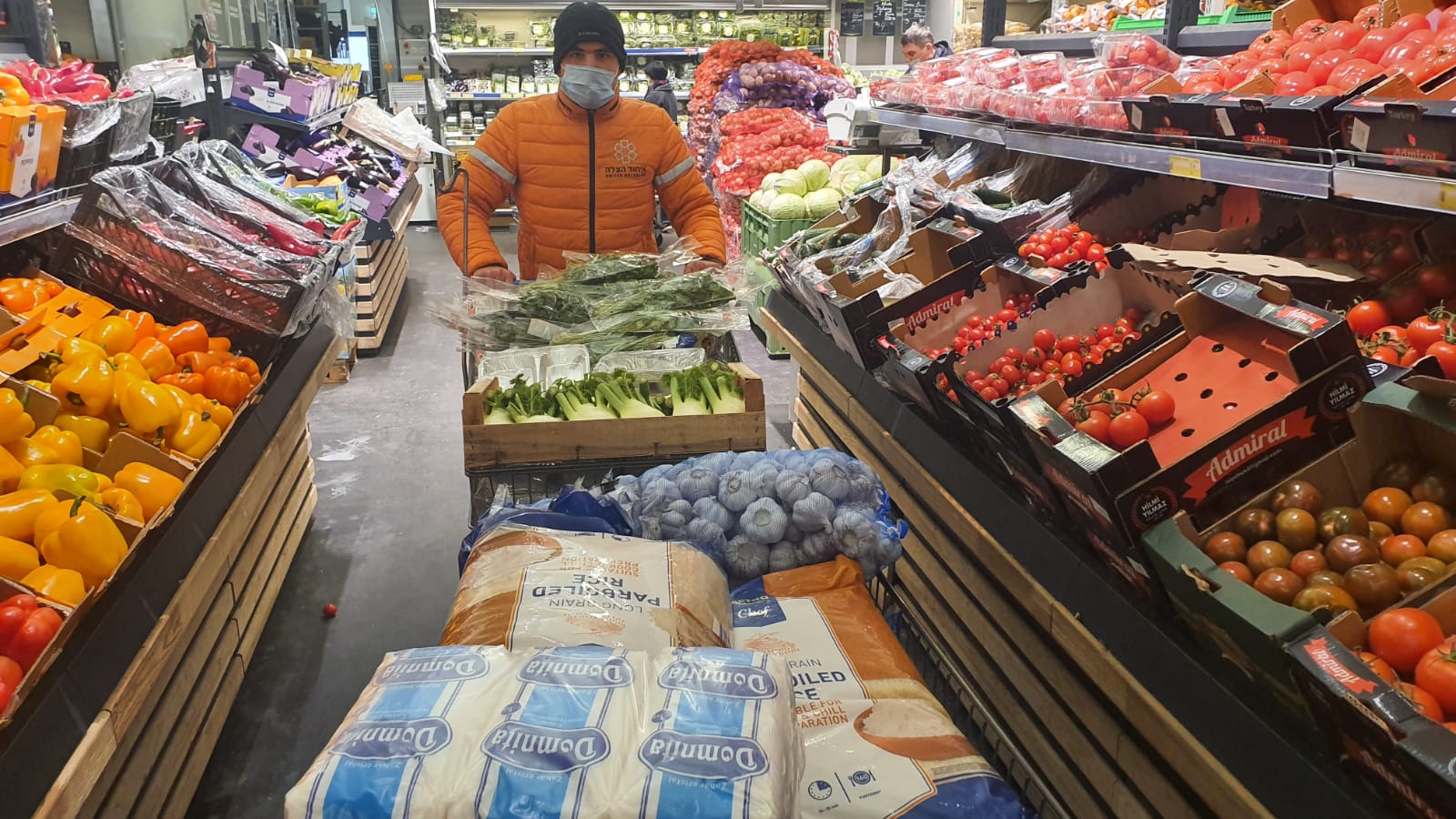United Hatzalah – The Humane Logistics of Humanitarian Aid
Ultra-Orthodox volunteer and logistics director’s firsthand account of shopping and cooking on Shabbat to help Ukrainian refugees
Chisinau – My name is Yossi Kletzky and I was one of the first team members to be sent to the Ukrainian border in Moldova together with United Hatzalah’s humanitarian aid and medical aid mission. When the call went out on Thursday that we would be sending a mission we had very little time to prepare and arrange all of the logistics. As the Director of the Maintenance Department for United Hatzalah, a lot of those responsibilities fell to me and my team in the Logistics department, which I am a part of. It was a near miracle that we got as much done as we did for the initial flight which took off on Saturday night.
During the first week and a half that I spent in Chisinau, Moldova, we have been working around the clock and hardly sleeping, all to aid the refugees and local community. Some of the things that were necessary to help the refugees were things that I had never done in my life and never thought I would do. I should explain that I am ultra-orthodox in my observance of Judaism. That means there is a long list of things that we refrain from doing on Shabbat, things like driving, cooking, using electricity unless we set it up beforehand as well as a variety of other things that are considered to be work.
On the first day when our delegation arrived at the community’s synagogue which the Rabbi, Rabbi Pinchas Saltzman allowed us to turn into our informal headquarters, we saw a kitchen the size of a regular home kitchen trying to cater for hundreds of refugees. They did the best they could and made a lot of food, but it wasn’t enough to supply the ever-increasing demand of the number of refugees who were coming into the city from Ukraine. The food they were making was very basic food.
We members of United Hatzalah’s logistics department are used to emergency situations and can provide professional responses and solutions in such situations for every aspect and in every kind of place. It’s what we are trained for and what we excel at.
As the only logistics representative of the organization who was a part of the initial delegation, I was sent to coordinate the logistics apparatus of the organization in Moldova. Thank G-d, after great efforts, and with the cooperation of the local community, I succeeded in establishing a much larger kitchen big enough to provide between 1,500 – 2,000 meals per day, every day, including on Shabbat. Normally cooking isn’t allowed on Shabbat, however, due to the refugee crisis, the rabbis of both the community and the organization ruled that this was a life-threatening emergency, and thus we were allowed to cook, and when we ran out of food, we were even allowed to go shopping for more food so that new refugees could have what to eat. Those were both completely new experiences for me. But we did what was needed.
When the second flight bringing in volunteers and supplies landed on Thursday, we had an influx of manpower, equipment, and food, which we were told would now be arriving daily from Israel, as United Hatzlah began in earnest its full operation of creating daily airlifts of food and supplies into Moldova, and taking daily airlifts of Ukrainian refugees out of Moldova and bringing them to Israel. Thanks to this, we have upped that number and are now able to provide approximately 2,500 meals per day. If the war continues and the number of refugees rises, there is a detailed plan for a kitchen that could produce 10,000 meals a day and more, and on Wednesday a group of chefs arrived to assist in the cooking of meals.
The food is being sent to refugees in tents on the borders, in hotels hired for them by the local community, synagogues and community centers where refugees are sleeping, and anywhere else that they are located. Some of the refugees came across the border having not eaten for days. These refugees include children, infants, pregnant women, and exhausted elderly people/ Many of them came by foot and walked dozens if not hundreds of kilometers in rain, mud, and snow. Many were carrying bags and suitcases. Some carried nothing at all. Some of them have not slept for days, and some are sick. One thing that will help them all, is a healthy, hot meal, cooked with love.
We saw the delight and excitement in their eyes the moment they saw us entering the various dining rooms and presenting them with hot meals. There was a feeling of unity, of a people united, in some places, there was even a sense of family helping one another in times of need.
I returned on Wednesday to Israel and I was replaced by Doron Daniel, Director of the Logistics Department as well as a team of volunteers from the department who will come with fresh new strength to continue the work that I had the merit to begin.
My job isn’t flashy. I wasn’t on the border handing out food or providing medical treatment. But it is of vital importance all the same. I am thankful that I had the opportunity of participating in the delegation and contributing from my experience in organizational logistics to help improve the emergency situation for the refugees. If even one refugee was made more comfortable and their trauma was alleviated a little bit because of the work I did, then for me it was all worth it.
Yossi Kletzki lives in Jerusalem and serves as the Director of Maintenance Department for United Hatzalah. Never before has he gone shopping for food, nor cooked, on Shabbat, and in spite of it all, he is happy that he did it because this too was saving lives.









